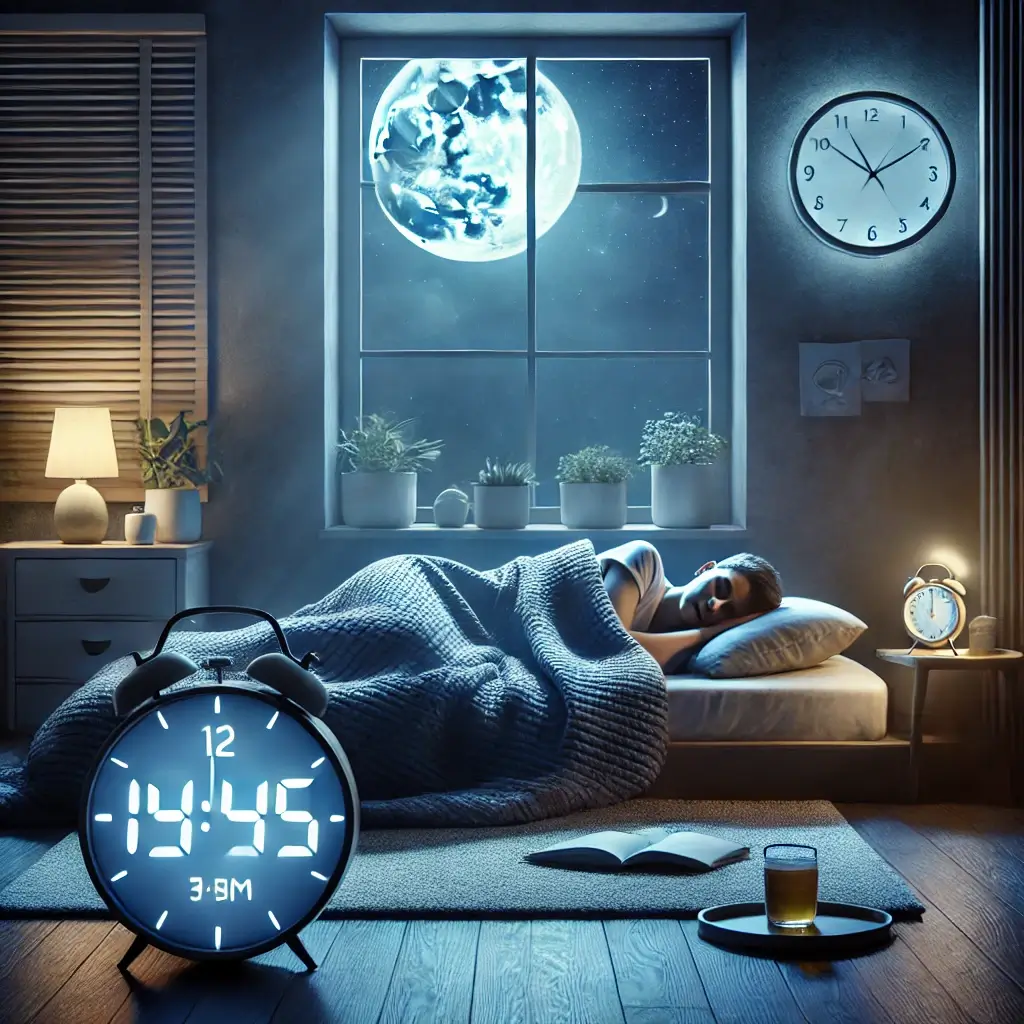The Quality Over Quantity in Sleep
Sleep is often equated with duration—the “eight-hour rule” frequently touted as the gold standard. However, the true hallmark of restorative rest lies in its quality. Deep sleep, also known as slow-wave sleep (SWS), plays a pivotal role in rejuvenation. During this stage, the body undergoes critical repair processes: muscles are mended, the immune system is fortified, and the brain processes memories and detoxifies itself.
The Challenge of Modern Sleep
Despite these profound benefits, achieving sufficient deep sleep remains a challenge for many. Aging, stress, and modern distractions such as excessive screen time contribute to diminished deep sleep. Research indicates that reduced deep sleep can lead to impaired cognitive function, chronic fatigue, and even increased susceptibility to chronic diseases like diabetes and heart disease (Van Cauter et al., 2008).
Understanding Deep Sleep Biology
Deep sleep is predominantly concentrated in the earlier part of the night and is characterized by slow delta brain waves. This stage not only facilitates physical recovery but also promotes mental clarity. A study published in Current Opinion in Neurology highlighted the neuroprotective effects of deep sleep, associating it with reduced risks of neurodegenerative disorders like Alzheimer’s disease (Xie et al., 2013).
Hormones and Metabolic Impact
Moreover, deep sleep plays a role in regulating hormones, such as growth hormone, which is essential for cell repair. It also influences metabolic health, with disruptions linked to insulin resistance and weight gain (Tasali et al., 2008). Understanding the biology of deep sleep provides a foundation for improving it through targeted strategies.
Screen-Time Management for Better Sleep
Blue light emitted by phones, tablets, and TVs interferes with melatonin production, delaying sleep onset and reducing deep sleep. Studies in Chronobiology International emphasize the importance of limiting screen exposure at least an hour before bedtime for optimal melatonin levels and sleep quality (Figueiro et al., 2017).
Optimal Sleep Environment
Maintaining a cool bedroom environment (60–67°F) can encourage the body to transition into deeper sleep stages. Research in Sleep Medicine Reviews found that ambient temperature significantly impacts sleep architecture, with cooler environments promoting slow-wave activity (van Marken Lichtenbelt et al., 2016).
Managing Stress for Better Sleep
Chronic stress is a major disruptor of deep sleep. Techniques like progressive muscle relaxation, yoga, and journaling can lower stress levels. A randomized controlled trial in Behavioral Sleep Medicine demonstrated that mindfulness-based stress reduction programs improve sleep quality and increase the proportion of deep sleep (Shallcross et al., 2019).
Nutritional Impact on Sleep
Certain nutrients, such as magnesium and tryptophan, are associated with better sleep. Magnesium relaxes muscles and calms the nervous system, while tryptophan is a precursor to serotonin, which is vital for sleep regulation. Incorporating magnesium-rich foods like nuts and leafy greens, along with tryptophan-rich proteins, can support deeper sleep (Abbasi et al., 2012).
Innovation in Sleep Therapy
Weighted blankets apply gentle pressure across the body, mimicking a therapeutic technique called deep touch pressure. This effect may help reduce anxiety and promote relaxation, creating favorable conditions for deep sleep. A pilot study in Journal of Sleep Medicine & Disorders found that weighted blanket use increased participants’ slow-wave sleep duration (Ekholm et al., 2020).
Professional Sleep Intervention
CBT-I is a gold-standard intervention for chronic sleep issues. It addresses harmful beliefs and behaviors around sleep, fostering long-term improvements in sleep quality. A meta-analysis in Sleep found that CBT-I increased both sleep efficiency and time spent in deep sleep (Trauer et al., 2015).
Light Exposure and Sleep Quality
Morning exposure to natural light helps regulate the circadian rhythm, ensuring deeper sleep at night. A study in Journal of Clinical Sleep Medicine revealed that individuals exposed to bright morning light fell asleep faster and experienced improved sleep quality overall (Gooley et al., 2011).
Making Deep Sleep a Priority
Deep sleep is foundational to physical health, mental clarity, and emotional resilience. Optimizing this critical stage of the sleep cycle requires a combination of lifestyle adjustments, such as limiting screen time and managing stress, along with exploring emerging innovations like weighted blankets and CBT-I.
Final Thoughts on Sleep Improvement
Commit to small, sustainable changes, and seek professional advice if sleep issues persist. By prioritizing deep sleep, you can unlock a healthier, more energized version of yourself, ensuring each day begins with renewed vitality and focus.
References
Abbasi, B., et al. (2012). The effect of magnesium supplementation on primary insomnia in elderly: A double-blind placebo-controlled clinical trial. Journal of Research in Medical Sciences, 17(12), 1161–1169.
Ekholm, E., et al. (2020). Weighted blankets and their effect on insomnia: A pilot study. Journal of Sleep Medicine & Disorders, 6(3), 15–22.
Figueiro, M. G., et al. (2017). The impact of blue light on sleep and circadian rhythms. Chronobiology International, 34(5), 615–628.
Gooley, J. J., et al. (2011). Circadian rhythm of melatonin in humans exposed to natural and artificial light. Journal of Clinical Sleep Medicine, 7(2), 113–119.
Shallcross, A. J., et al. (2019). Mindfulness meditation and sleep quality improvement: A randomized trial. Behavioral Sleep Medicine, 17(2), 100–112.
Tasali, E., et al. (2008). Slow-wave sleep and metabolic regulation. Proceedings of the National Academy of Sciences, 105(3), 1044–1049.
Trauer, J. M., et al. (2015). Cognitive behavioral therapy for chronic insomnia: A systematic review and meta-analysis. Sleep, 38(9), 1311–1326.
van Marken Lichtenbelt, W. D., et al. (2016). The impact of ambient temperature on sleep. Sleep Medicine Reviews, 29, 23–30.
Van Cauter, E., et al. (2008). Sleep and hormonal regulation in aging. Endocrine Reviews, 29(6), 948–976.
Xie, L., et al. (2013). Sleep drives metabolite clearance from the adult brain. Current Opinion in Neurology, 26(6), 671–678.
